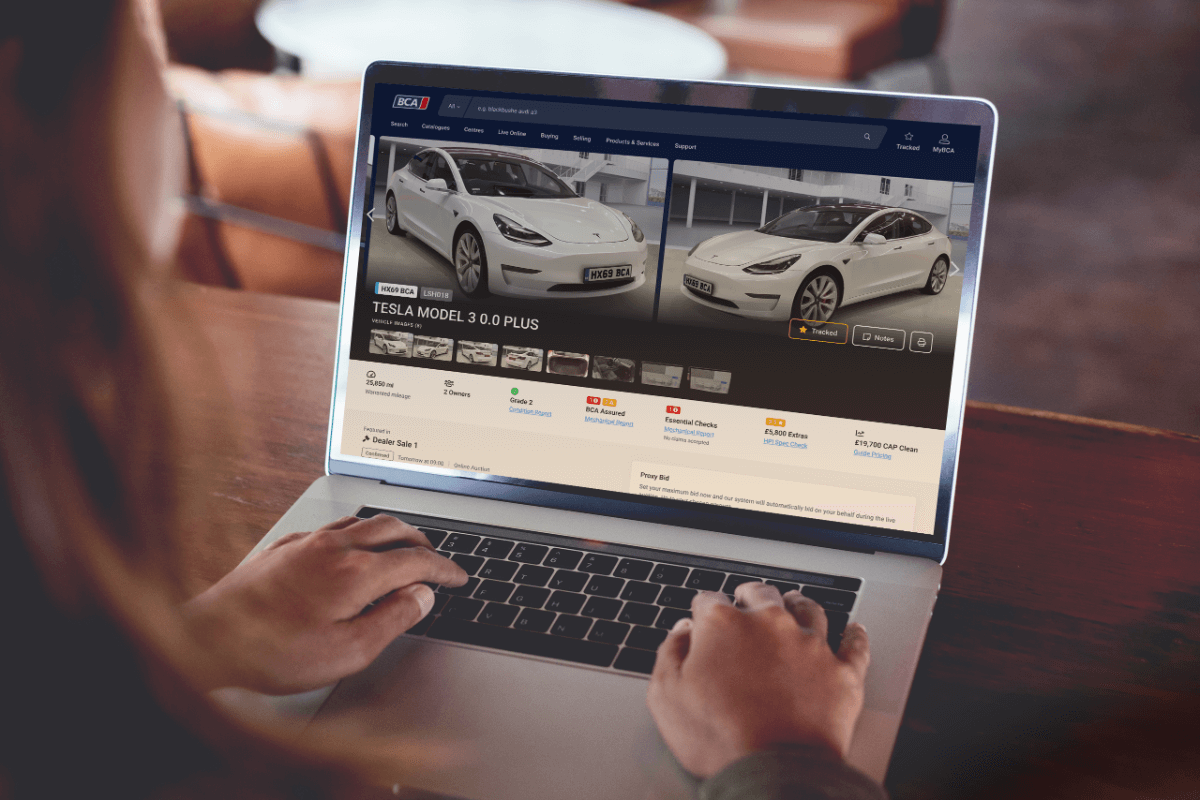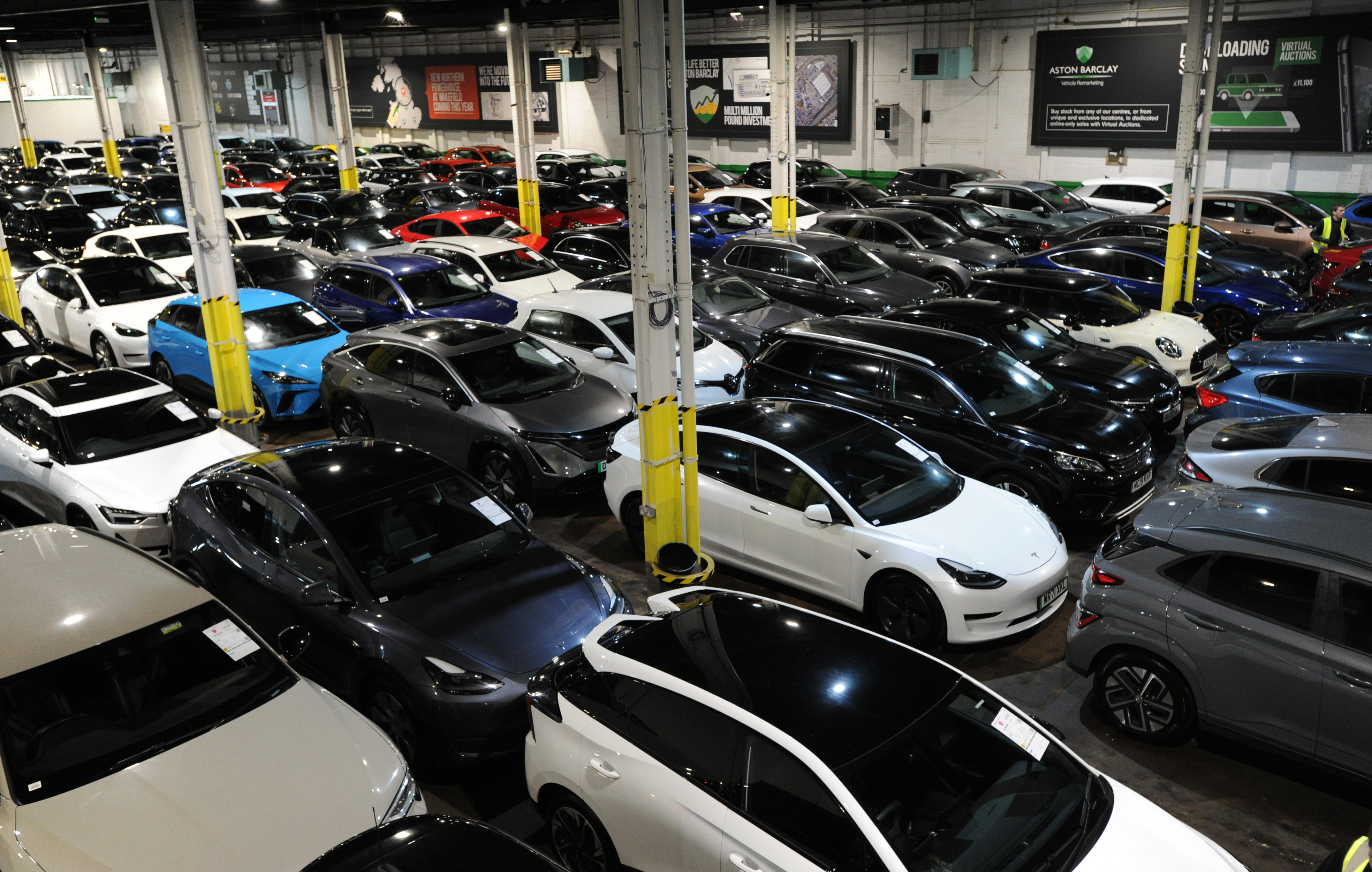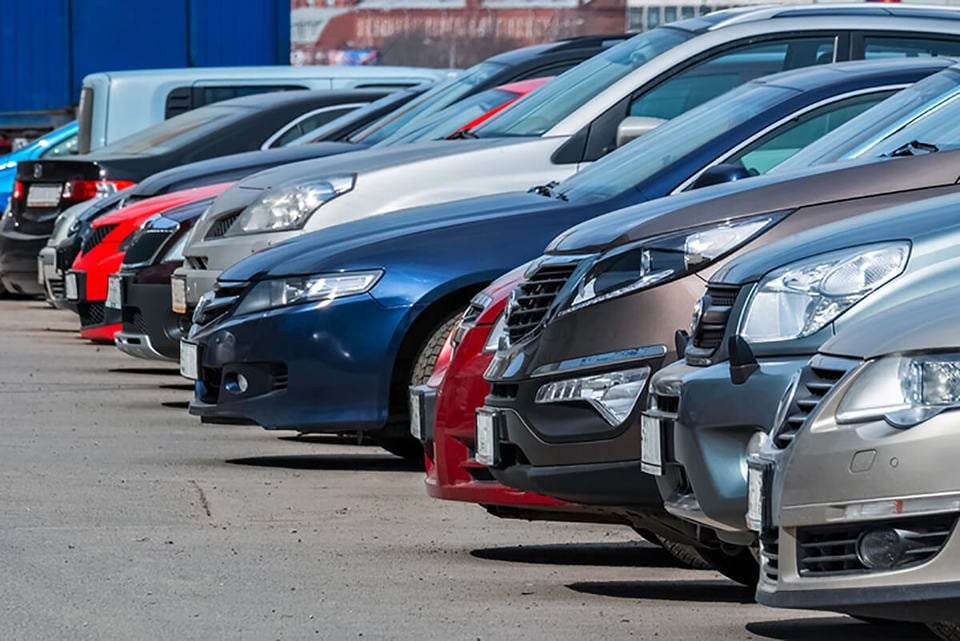November has continued to see average used car values decline, down by 4.2% in the month for three-year-old vehicles, mirroring the fall in October.
The new figures, from pricing experts at Cap HPI, reflect a realignment in trade prices, with the 4.2% decline equivalent to £775.
The average value of a used car at three years, 60,000 miles, fell by 4.2% in October.
However, average values remain around 15% above where they were at the start of 2021 for petrol and diesel vehicles, while electric vehicles (EVs), on average, are around 20% lower.
At the one-year age point, values dropped by a lower 3.3% in November, equivalent to around £1,000, while older vehicles performed better, with a 2.6% drop at the 10-year point.
Indeed, cars valued below £5,000 have dropped by 2.4%, less than £90 on average.
SUVs fell by 4.9% or around £940 on average, with small and medium models being the worst affected, with a drop of 10% in two months.
Meanwhile, petrol and diesel values at three years have, on average, dropped by similar amounts, although diesel has declined by slightly less.
EVs have reduced by 3.3% or £750, and this is now the third consecutive month in a row that battery-powered cars have been the best performing fuel type, albeit in a falling market.
Derren Martin, head of valuations at Cap HPI, said: “It is not uncommon for values to drop in November, with movements of 3.1% in 2014, 2.6% in 2015 and 3.0% in 2020, although there have also been some stronger years when volumes were lower, particularly over the last two years.
“This year is, however, the largest drop going into December that we have on record. There is no escaping that a realignment, not a crash, is ongoing.”
The data and technology company adjusts values within its cap Live product. Values are based primarily on sold prices evidenced in the used market.
Data is received from a large number of industry sources, from large and small physical and online auctions, fleet and leasing companies, finance houses, rental companies and manufacturers used car programmes.
The data represents thousands of sales to thousands of franchise dealers, used car supermarkets and independents per day.
A team of editors and analysts review the wholesale market data and reference retail market data from a number of high-volume used car websites.
Martin said: “Values will likely continue to drop in the run-up to Christmas. While retailers' appetite may increase slightly as they look to buy for an anticipated increase in consumer demand, this is unlikely to be in large quantities and not by enough to eat too much into the volumes that are present in the wholesale market.
“Since Cap Live was introduced in 2012, December has experienced an average drop of just 1.3%, with the largest being 2.2% in 2014.
“With the current realignment ongoing, however, and consumer demand only likely to increase after Christmas, it would be no surprise for a downward movement in excess of these figures.”
Consumer demand ‘remains robust’

In the retail market, data from Auto Trader suggests that transactions and consumer demand remains robust, with all segments of the second-hand market recording growth on 2022’s levels.
Based on 800,000 daily pricing observations, the data also shows strong price growth in a significant proportion of the used retail market, with those cars aged above five-years-old increasing 2.2% year-on-year at the November mid-month point, while those aged over a decade are up a very robust 8.4%.
However, highlighting the current nuance of the market, the average price of cars aged below five-years-old are down 4.5% year-on-year, due, in part, to the increased supply of younger vehicles over recent months, as well as increasing pressure from new-car deals.
As a result of the softening in younger vehicles, the overall total market figure is being pulled down, contracting by 2.3% so far this month.
The overall demand of the retail market is reflected in the current speed in which used cars are leaving retailers’ forecourts.
On average, cars are taking just 31 days to sell in November, which is the same speed as the last three years but is faster than pre-pandemic November 2019 (33 days).
Of all of the fuel types, electric cars are taking the least amount of time to sell, currently taking an average of just 25 days, compared to 31 for both petrol and diesel. What’s more, says Auto Trader, of the top 10 fastest selling models, five are electric, and four are hybrid.
Auto Trader’s director of data and insights, Richard Walker, said: “Used car supply is increasing, but critically it remains behind demand, which makes any sudden or significant drop in retail prices unlikely.
“With a large proportion of the market still recording strong price growth, car buyers are clearly prepared to pay the retail market value, and so I would urge retailers not to risk profit potential or a self-fulfilling prophecy by making knee jerk reactions based on trends in trade values.
“Cars continue to sell, and importantly, quickly – by buying and selling fast, there’s little time for small changes in value to be felt. So, my advice remains unchanged; price to the market to sell quickly, and don’t give up your profits unnecessarily, follow the data.”
Top 10 fastest selling used cars in November (up to November 17)
|
Rank |
Make |
Model |
Fuel type |
Age cohort |
Median days to sell |
|
1 |
Jeep |
Compass |
Petrol Hybrid |
up to 1 Year |
9 |
|
2 |
Kia |
Niro |
Electric |
3 to 5 Years |
11 |
|
3 |
Hyundai |
IONIQ |
Electric |
3 to 5 Years |
12 |
|
4 |
Mercedes-Benz |
A Class |
Petrol Plug-in Hybrid |
3 to 5 Years |
13 |
|
5 |
Renault |
Zoe |
Electric |
3 to 5 Years |
14 |
|
6 |
Mercedes-Benz |
A Class |
Petrol Plug-in Hybrid |
3 to 5 Years |
14 |
|
7 |
Vauxhall |
Combo Life |
Petrol |
3 to 5 Years |
14 |
|
8 |
Hyundai |
IONIQ |
Petrol Hybrid |
1 to 3 Years |
14 |
|
9 |
Volkswagen |
e-Golf |
Electric |
3 to 5 Years |
14 |
|
10 |
Renault |
Zoe |
Electric |
1 to 3 Years |
14.5 |
Top 10 slowest selling used cars in November (up to November 16)
|
Rank |
Make |
Model |
Fuel type |
Age cohort |
Median days to sell |
|
10 |
Volkswagen |
Passat |
Diesel |
10 to 15 Years |
67 |
|
9 |
Suzuki |
SX4 S-Cross |
Petrol Hybrid |
up to 1 Year |
69 |
|
8 |
BMW |
M4 |
Petrol |
3 to 5 Years |
69 |
|
7 |
BMW |
4 Series |
Diesel |
3 to 5 Years |
71 |
|
6 |
Audi |
Q4 e-tron |
Electric |
up to 1 Year |
73 |
|
5 |
Renault |
Grand Scenic |
Diesel |
10 to 15 Years |
74.5 |
|
4 |
Porsche |
Cayenne |
Diesel |
10 to 15 Years |
75 |
|
3 |
Porsche |
911 |
Petrol |
10 to 15 Years |
76 |
|
2 |
Jaguar |
E-PACE |
Diesel |
1 to 3 Years |
79 |
|
1 |
Honda |
HR-V |
Petrol Hybrid |
1 to 3 Years |
81.5 |
BCA reports average value lift

Average used car values remain under significant pressure according to BCA, despite seeing average values lift slightly in October.
Used car values at BCA rose to £7,397 in October, up from £7,262 in September, halting a trend that had seen values decline for four consecutive months, but heavily influenced by an improving mix of product.
At the same time, the price guides declared the largest monthly downward move in more than 10 years, with a 4.2% across the board decline for the month of October.
Stuart Pearson, BCA’s chief operating officer, said: “Our buyer customers tell us that the retail used car market continues to be very tough.
“Movements in values have further been exacerbated by improving new car supply, along with the reemergence of new car discounting and manufacturer support that has been virtually extinct since the start of the pandemic.
“It therefore shouldn’t be surprising that we’re experiencing some realignment of used values following the inflated prices that have existed for the last three years.”
He continued: “Fortunately, the last few years have created greater rigour around used vehicle stocking which means that even with the value movements that the market is experiencing, engagement with our buyer base remains positive and sellers and buyers are finding a way to transact, albeit there is definitely some pain being taken.
“As a result of the pricing volatility, buyers continue to remain extremely selective and condition sensitive, and many are applying further uncertainty discounting to insulate them from expected falls in values between now and the end of the year.”
Toyota Prius tops Aston Barclay’s desirability index

The Toyota Prius has been revealed as the most desirable used EV/hybrid this month, according to insights from vehicle remarketing expert Aston Barclay.
Since Toyota stopped selling the current model in 2022 it has become extremely popular as a used car, particularly in the private hire taxi market.
This month’s desirability index, which ranks all makes and models processed through the auction halls based on web views prior to sale, number of physical and online sale bids, and sale price achieved as a percentage of CAP average, reflects the current market trend where dealers’ confidence is growing to stock sub-£15,000 used hybrids and EVs on their forecourts.
Seven out of the top 10 fit this bill with the BMW i3 and MG ZS EV in fifth and sixth, while the Kia eNiro, Hyundai Ioniq, Renault Zoe and Nissan Leaf make up the remainder of the top 10.
Just three premium EVs – the Porsche Taycan, Mercedes EQC and Audi E-tron - made the index, which indicates dealers are investing in buying higher value used EVs to meet customer demand, rather than for general stocking purposes. That said, supply is increasing, and the market is moving fast.
“Desirability is a key word in the used market currently as dealers want to fill their forecourt full of used cars with a fast stock turn, particularly now that stocking costs are rising and used prices are softening,” explained Nick Thompson, chief customer officer at Aston Barclay.
“It’s good to see more dealers bidding on and buying EVs in response to rising consumer demand. The wholesale market is changing its views on EVs which is a positive sign and one that will continue to improve over time,” he added.
The top ten most desirable used EVs/hybrids
|
Make |
Model |
|
TOYOTA |
PRIUS |
|
PORSCHE |
TAYCAN |
|
MERCEDES-BENZ |
EQC |
|
AUDI |
E-TRON |
|
BMW |
i3 |
|
MG MOTOR UK |
ZS EV |
|
KIA |
E-NIRO |
|
HYUNDAI |
IONIQ |
|
RENAULT |
ZOE |
|
NISSAN |
LEAF |























Login to comment
Comments
No comments have been made yet.